第43章 CHAPTER IX THE PROMISE(4)
Also, they brought mealies and other corn; and oh! the delight with which those poor people, who for months and months had existed upon nothing but flesh-meat, ate of this farinaceous food. Never shall I forget seeing Marie and the surviving children partake of their first meal of porridge, and washing the sticky stuff down with draughts of fresh, sugared milk, for with the oxen I had succeeded in obtaining two good cows. It is enough to say that this change of diet soon completely re-established their health, and made Marie more beautiful than she had ever been before.
Having got the oxen, the next thing was to break them to the yoke; for, although docile creatures enough, they had never even seen a wagon.
This proved a long and difficult process, involving many trial trips; moreover, the selected wagons, one of which had belonged to Pereira, must be mended with very insufficient tools and without the help of a forge. Indeed, had it not chanced that Hans, the Hottentot, had worked for a wagon-maker at some indefinite period of his career, I do not think that we could have managed the job at all.
It was while we were busy with these tasks that some news arrived which was unpleasing enough to everyone, except perhaps to Henri Marais. I was engaged on a certain evening in trying to make sixteen of the Kaffir cattle pull together in the yoke, instead of tying themselves into a double knot and over-setting the wagon, when Hans, who was helping me, suddenly called out:
"Look! baas, here comes one of my brothers," or, in other words, a Hottentot.
Following the line of his hand, I saw a thin and wretched creature, clad only in some rags and the remains of a big hat with the crown out, staggering towards us between the trees.
"Why!" exclaimed Marie in a startled voice, for, as usual, she was at my side, "it is Klaus, one of my cousin Hernan's after-riders."
"So long as it is not your cousin Hernan himself, I do not care," I said.
Presently the poor, starved "Totty" arrived, and throwing himself down, begged for food. A cold shoulder of buck was given to him, which he devoured, holding it in both hands and tearing off great lumps of flesh with his teeth like a wild beast.
When at last he was satisfied, Marais, who had come up with the other Boers, asked him whence he came and what was his news of his master.
"Out of the bush," he answered, "and my news of the baas is that he is dead. At least, I left him so ill that I suppose he must be dead by now."
"Why did you leave him if he was ill?" asked Marais.
"Because he told me to, baas, that I might find help, for we were starving, having fired our last bullet."
"Is he alone, then?"
"Yes, yes, except for the wild beasts and the vultures. A lion ate the other man, his servant, a long while ago."
"How far is he off?" asked Marais again.
"Oh, baas, about five hours' journey on horseback on a good road." (This would be some thirty-five miles.)
Then he told this story: Pereira with his two Hottentot servants, he mounted and they on foot, had traversed about a hundred miles of rough country in safety, when at night a lion killed and carried off one of the Hottentots, and frightened away the horse, which was never seen again. Pereira and Klaus proceeded on foot till they came to a great river, on the banks of which they met some Kaffirs, who appear to have been Zulus on outpost duty. These men demanded their guns and ammunition to take to their king, and, on Pereira refusing to give them up, said that they would kill them both in the morning after they had made him instruct them in the use of the guns by beating him with sticks.
In the night a storm came on, under cover of which Pereira and Klaus escaped. As they dared not go forward for fear lest they should fall into the hands of the Zulus, they fled back northwards, running all night, only to find in the morning that they had lost their way in the bush. This had happened nearly a month before--or, at any rate, Klaus thought so, for no doubt the days went very slowly--during which time they had wandered about, trying to shape some sort of course by the sun with the object of returning to the camp. They met no man, black or white, and supported themselves upon game, which they shot and ate raw or sun-dried, till at length all their powder was done and they threw away their heavy roers, which they could no longer carry.
It was at this juncture that from the top of a tall tree Klaus saw a certain koppie a long way off, which he recognised as being within fifteen miles or so of Marais's camp. By now they were starving, only Klaus was the stronger of the two, for he found and devoured some carrion, a dead hyena I think it was. Pereira also tried to eat this horrible food, but, not having the stomach of a Hottentot, the first mouthful of it made him dreadfully ill. They sought shelter in a cave on the bank of a stream, where grew water-cresses and other herbs, such as wild asparagus. Here it was that Pereira told Klaus to try to make his way back to the camp, and, should he find anyone alive there, to bring him succour.
So Klaus went, taking the remaining leg of the hyena with him, and on the afternoon of the second day arrived as has been told.